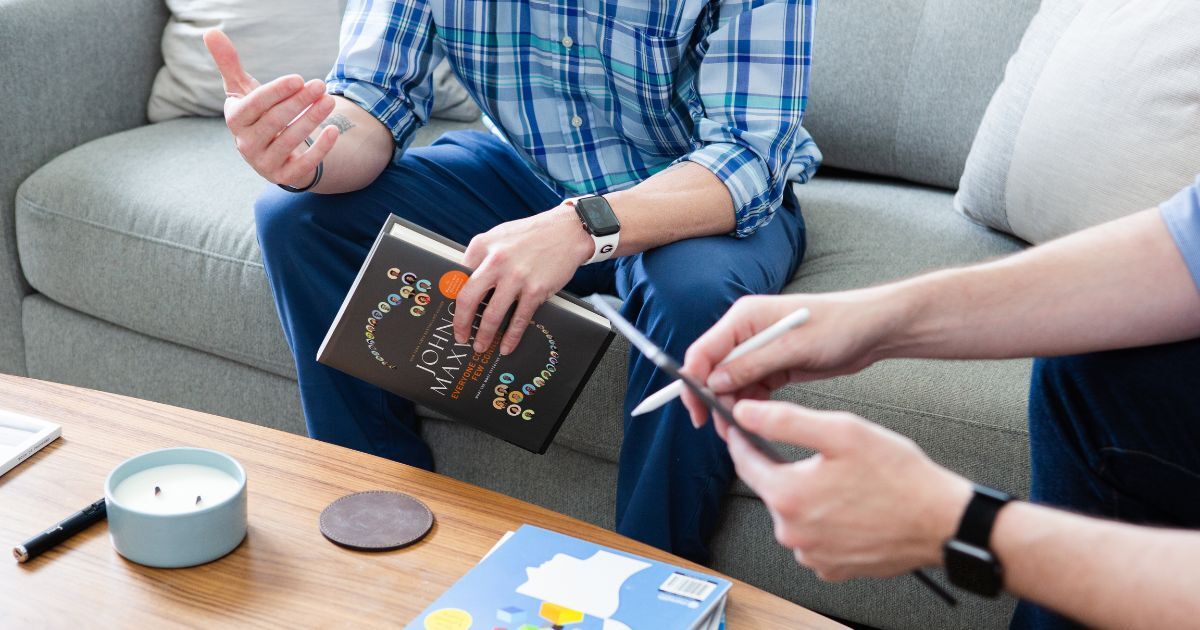
Work-Life Balance. It’s an often mystical target for many. The idea most people have is that of a two-sided scale. The weight of one side must equal the weight of the other side to achieve “balance” properly. In theory that would mean you perfectly balance “work” and “life” overall. This is the Balance Equation.
This word picture is dangerously inaccurate.
The initial concern I have with “Work-Life Balance” as a phrase is that it implies that Work and Life are separate things. Isn’t Work just part of your Life? Considering that fact, how can you balance one thing that is a part of a larger thing? You can’t. So what is it we’re trying to balance?
In essence what people try to balance is often a mixture of Work, Family, and Me. (“Work-Family-Me Balance” just doesn’t roll off the tongue, does it?) Work is the stuff you do — wait for it — at work. Family could be your spouse, children, siblings, parents, extended family, and close friends. "Me" is, in essence, the time you spend on and for yourself. Different people crave each of these things in different sizes and ways.
Now that we’ve properly identified the things we want to balance, let’s talk about the keyword itself: Balance.
Going back to the opening word picture, it’s easy to think of this like that two-sided (or three-sided now) scale. The problem is that you can be led to think you’re supposed to keep them equal all the time. That’s the ultimate goal of a “balanced life”, right? Well, I think that’s a pretty crappy goal in life. Here’s why.
Life is fluid. It changes and evolves. You know this. I know this. If we aim to keep Work, Family, and Me balanced equally all the time, we’re setting ourselves up for disappointment. And when you’re working toward goals, having frequent disappointment can be detrimental to maintaining consistent effort toward them. If you’re not sure how your life could be so fluid that it would throw off your balance, consider the following possibilities:
- You experience a major illness or lose a family member
- You battle depression which comes and goes in waves
- You have a baby (which changes everything, if you aren’t aware)
- Your business goes through a really rough patch (mostly applicable if you own the business)
- You specifically go through a really rough patch at work
I could go on. The point is that we all have major life events that could impact the balance of time we spend at Work, with Family, and on Me. How is someone supposed to keep these three things balanced amidst things like this? You can’t. That’s where the awareness of Seasons becomes incredibly important.
We will all go through Seasons in life where certain areas need more attention and energy. Maybe we need to invest more energy into Work to save a portion, or all, of the business. Maybe we need to invest more energy into Family because of a major illness or trying to save a marriage that’s on the fringe of falling apart. Maybe we need to invest more energy into ourselves because we’ve burnt out from exerting all of our energy into other things and people.
We all go through Seasons. Some Seasons are shorter than others. Some are more comfortable than others. The key is being aware that they come and go and knowing what type of Season you’re currently in.
Accepting the existence of Seasons means you accept the fallacy of the Balance Equation. There is no equal sign with two values on each side trying to equal one another.
A New Picture of Balance
Have you ever watched young children learn to crawl, walk, and run? At each stage they have to learn skills that they didn’t previously have. Throughout the process you can watch them get into a position and try to hold it. It’s fun to watch.
I remember my daughter pulling up on our couch to help her stand up. The look of intrigue and bravery when she let go of the couch to stand on her own was a fun sight. She would stand there and see how long she could hold herself up before falling down.
She was learning to balance.
After learning to balance while standing still, she started taking a step or two. Once this entered the equation she needed to learn a new type of balance. This was the balance required while walking. Naturally she’d fall over while learning. But she’d get back up and keep going.
This is the word picture I think of when I talk about balancing one’s life.
At first, we kinda suck at balancing things. We have to practice it. We often need to see someone else doing it so we know what it looks like. Then, as we practice, we begin to get better at balancing. We may still fall from time to time but we know how to get back up. Occasionally we lose our balance because we’re exhausted, so rather than get up immediately we just chill out on the floor a bit. But the key is that we know what standing and walking looks like so we know how to get there again.
There is no such thing as work-life balance. Everything worth fighting for unbalances your life.
Alain de Botton
How is your balance right now?
Have you seen this type of Work-Personal-Me balance in someone else?
Are you in the crawling stage? Walking? Running?
Have you recently lost balance and need to get back up?
Give it some thought.
Opening Photo by Loic Leray on Unsplash

by Erik Reagan
Related Content

Article
Leading with Wisdom: Applying the Five Agreements in Your Business
A few weeks ago, I was chatting with two fellow business owners. One was sharing a significant challenge with a client when the other, Drew, brought up The…

Erik Reagan

Article
Start with Wins: The Power of Positive Meeting Openings
Ever notice how a single positive interaction can shift the entire trajectory of your day? There's actually solid science behind that feeling, and it's…

Erik Reagan

Article
The Do’s and Don’ts of Budgeting for Professional Development
When it comes to professional development, small business owners face a unique challenge. With limited resources, you need every dollar to stretch as far as…

Erik Reagan